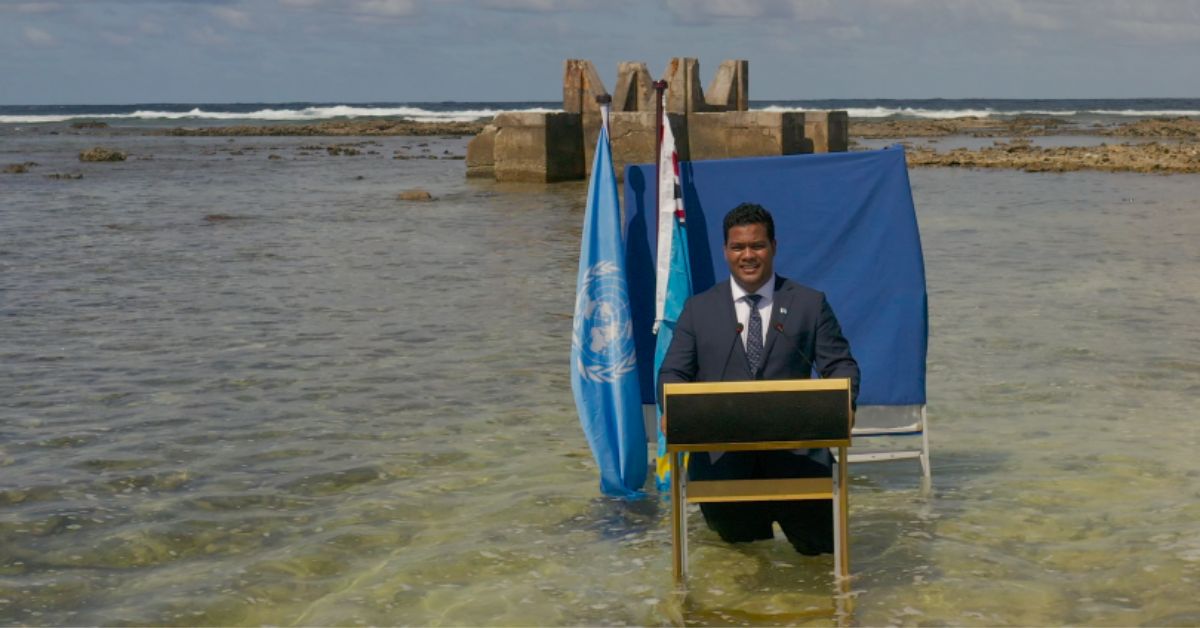Tuvalu announced plans on Tuesday to create a digital replica of itself. It will replicate islands and landmarks. Also, it will preserve its history and culture. The reason is raising sea levels due to climate change that threatens to submerge the tiny Pacific island nation.
Tuvalu’s Foreign Minister, Simon Kofe, stated at the COP27 climate summit that it was time to consider alternative solutions for his country’s survival. It includes Tuvalu becoming the first digitized nation in the metaverse. That means an online realm that uses augmented and virtual reality (VR) to help users interact.
Kofe in the video says that his land, ocean, and culture are the most valuable assets of the Tuvalu people. He adds that they will move them to the cloud to keep them safe from harm, no matter what happens in the physical world. The video shows him standing on a digital replica of an islet threatened by rising sea levels.
Kofe captured global attention at last year’s COP26 when he addressed the conference while standing knee-deep in the sea to demonstrate Tuvalu’s vulnerability to climate change.
The country was forced to act because countries around the world were not doing enough to prevent climate change, he explained.
Tuvalu to replicate itself
It will be the first country to replicate itself in the metaverse, but it will be followed by the city of Seoul and the island nation of Barbados. Both announced plans to enter the metaverse last year to provide administrative and consular services.
The plan is to continue operating as a state while also preserving our culture, knowledge, and history in a digital space, Kofe told Reuters ahead of the announcement.
Tuvalu, a group of nine islands with a population of 12,000 people halfway between Australia and Hawaii, has long been a symbol of the dangers of climate change and rising sea levels.
At high tide, up to 40% of the capital district is submerged. It is expected the entire country to be submerged by the end of the century.
Is digital nation going to function?
Kofe expressed hope that the creation of a digital nation would allow Tuvalu to function as a state even if it was completely submerged.
This is significant as the government begins efforts to maintain Tuvalu’s international recognition as a state and its maritime boundaries – including the resources within those waters, even if the islands are submerged.
According to Kofe, seven governments have agreed to continuous recognition, but there will be challenges if Tuvalu fails because it is a new area of international law.

